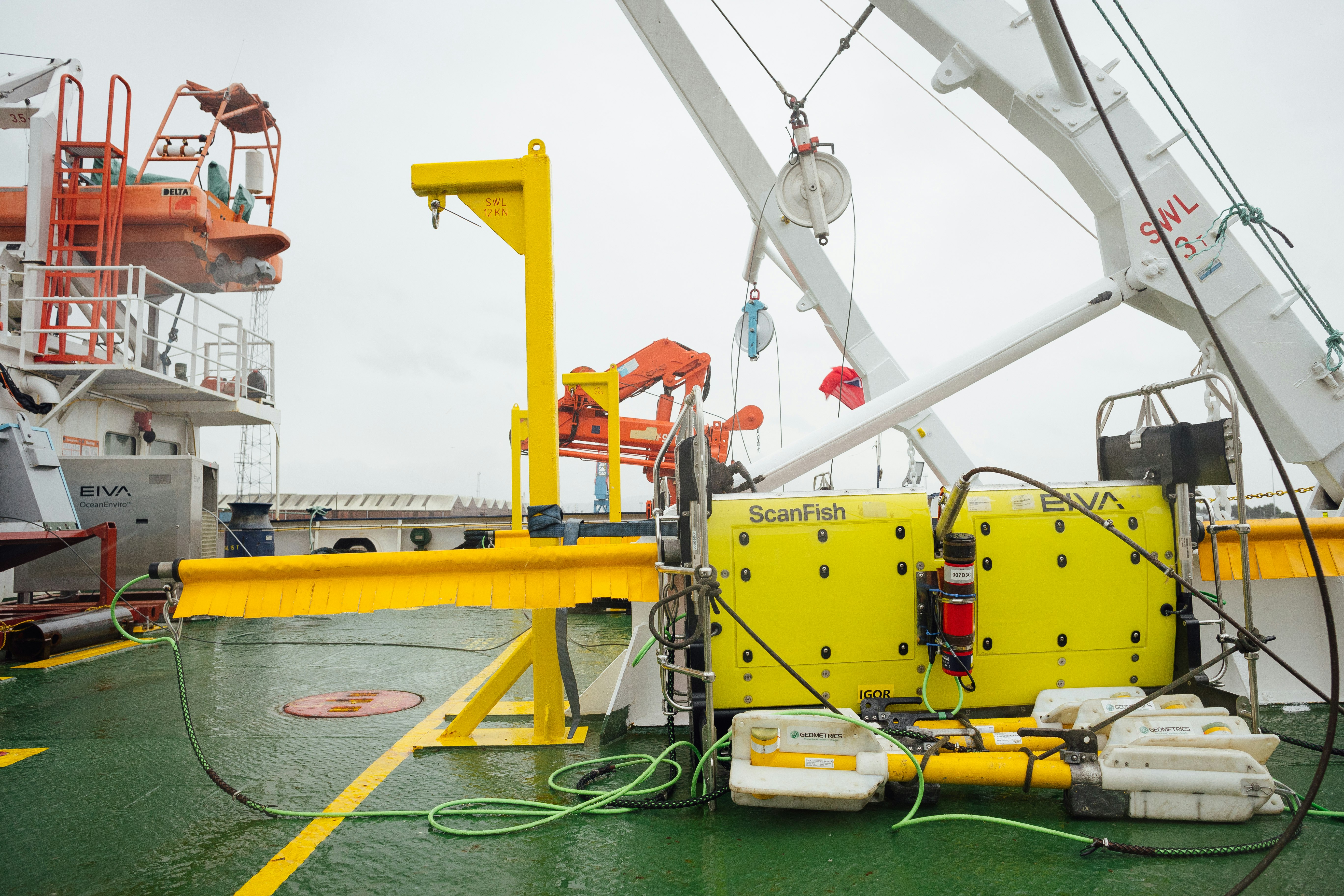
Milestone for floating wind off coast of Wales and South West England as first marine surveys get underway
Plans to unlock valuable new clean energy off the coast of Wales and South West England are due to reach another milestone, with the first in a series of specialist survey vessels setting sail from Swansea.
The vessel, which has a crew of 30, will spend around 100 days at sea, using towed and hull-mounted sensors to gather geophysical data on the properties of the seabed and sub-seabed.
Operated by leading specialists Fugro, this is the first in a series of studies funded by The Crown Estate as it looks to accelerate plans for new floating offshore wind farms in the Celtic Sea, off the coast of Wales and South West England. The multi-million-pound programme includes plans for further surveys over the next two years which will see data collected on everything from wind and wave patterns to birds and marine mammals in the area.
The surveys have been designed to deliver strong, reliable datasets which will not only inform The Crown Estate’s own understanding of the seabed, but will be made freely available to successful bidders to support their own decision making and future progress through the planning process. This builds on The Crown Estate’s world-leading approach to gathering and sharing marine data and evidence, helping to deepen the understanding of the seabed and support the development of a wide range of offshore projects.
The surveys follow publication by The Crown Estate on 4th July of the proposed locations of the wind farms, with four project sites set to deliver up to 4GW of floating wind capacity. This would be enough to power around four million homes, making it one of the largest such initiatives in the world. As part of this update, The Crown Estate also set out how developers will be required to recognise the critical role of ports when bidding to build the new floating wind farms; and how it intends to drive social value through the auction process.
Nicola Clay, Head of New Ventures at The Crown Estate, said:
“After many months of careful preparation and planning, these surveys mark an exciting step forward for our plans to establish new floating wind technology of the coast of Wales and South West England. By better understanding the physical and environmental properties of the proposed sites, we are able to help remove some of the barriers and risks developers face when moving through the planning process, while also helping assess and manage any environmental impacts.
“Over the last 25 years the UK has firmly established itself at the forefront of the global offshore renewables industry. Floating offshore wind is the next exciting chapter in this story, and has a vital role play in strengthening our energy security, supporting our transition away from fossil fuels, and generating real value for the UK. We look forward to bringing this new opportunity in the Celtic Sea to market later this year.”
Gerard Ferreira, Service Line Manager at Fugro UK, said:
“Our high-resolution technologies combined with our team of experts will provide a turnkey solution to The Crown Estate in the acquisition of the various site specifics data sets. This critical data will help to de-risk the area for future development, supporting the move to clean energy in the United Kingdom.
Fugro has a proud history of working safely and working with the environment and we look forward in supporting The Crown in their energy endeavours.”
Fugro is a leading global Geo-data specialist, collecting and analysing comprehensive information about the Earth and the structures built upon it. Employing approximately 10,000 people in 57 countries, Fugro serves clients around the globe, predominantly in the energy, infrastructure and water industries, both offshore and onshore.
Since first setting out plans in 2011 to explore viable options for a potential leasing opportunity for the first commercial-scale floating wind projects in the Celtic Sea, The Crown Estate has been engaging extensively with governments and stakeholders to help de-risk the development process as far as possible. In May this year it updated developers that, through this engagement, it was clear that this area of seabed was subject to many competing demands, requiring further work by UK Government to resolve a number of spatial considerations and policy drivers. This work is ongoing, supported by The Crown Estate.
The programme of surveys is one of a number of steps The Crown Estate is taking to help accelerate the deployment of floating offshore wind and reduce the potential risks faced by developers. Other steps include:
Working closely with National Grid ESO to ensure a timely and coordinated grid connection plan
Working to deliver a Plan-Level Habitats Regulations Assessment ahead of the tender process
Further engagement is planned over the summer to ensure there are no significant further considerations before proceeding to market later this year, in addition to keeping prospective developers informed about any other requirements arising from the ongoing work with UK Government.